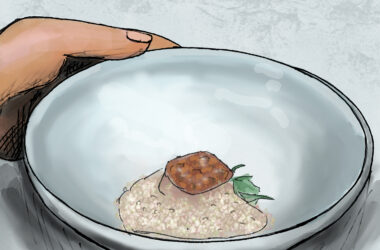Tracy Chapman’s “Fast Car” recently hit the No. 2 spot on Billboard’s Hot 100, winning Song of the Year at the 2023 Country Music Awards. I know what you’re thinking; no, it’s not 1988 again. A cover of the hit, released by country music artist Luke Combs on his newest album “Gettin’ Old,” has been garnering these accolades. Additionally, it has won Combs “Single of the Year” (CMA Awards), hit No. 1 on the Billboard Country Airplay Chart, and was recently certified platinum. While Combs’ success is impressive and spotlights Tracy Chapman thirty-five years after the song’s release, critics are torn over what this means given the discriminatory nature of country music. Some are uneasy about Combs’ achievements as a white man gaining so much attention for covering a queer Black woman’s work.
Tracy Chapman has been quoted saying she never expected to find herself on the country music charts, and Black country music artists have been striving to get there for decades. Radio stations playing the music of predominantly white male country singers have exacerbated this struggle. A study from the University of Ottawa found that within the country music genre, the ratio of spins for male to female artists was 9.7:1. Another study conducted by SongData showed that between 2014 and 2020, artists of colour only received 4.8 per cent of country music format’s airplay. Both of these findings emphasize the strong bias toward white and male artists within the genre.
Despite the country music community’s whiteness, Black artists are integral to the fabric of the genre. Historically, both the African-American and white communities in the Southern United States played “country music”. Its origins were largely influenced by African-American and Native American communities; enslaved peoples began the first string bands, and the blues—one of country music’s hallmarks—was an invention of African-American communities. Some credit the banjo as originating from West Africa, and a Kanaka Maoli teenager, Joseph Kekuku, created the steel guitar. Even the lyrics of country music have their origins in enslaved people’s spirituals, hymns, and field songs—all predominantly Black sources. Important early Black country artists include Lesley Riddle, who shaped the genre of modern country music primarily through his collaborations with the Carter Family, and Arnold Shultz, who was integral to Travis Picking’s development.
Country music began to be marketed along racial lines in the Jim Crow era, as the industry divided it into two categories: “Hillbilly” and “race.” While both of these terms are problematic, the “different” categories have the same roots. White country music, labeled as “hillbilly,” was specifically targeted toward the expanding white middle class in order to bring respect as well as profits to the genre. Eventually, this turned that demographic into the stereotypical audience of country music known today.
The marginalization of Black voices and influence has continued to the present. Mickey Gurton, who has fought to be recognized in the genre for over ten years, became the first Black female country music star to perform at the Grammys in 2021, singing her hit single, “Black Like Me.” Up until that point, radios excluding women artists and artists of colour afforded her little air time in order to present her music to the public. Since her Grammy performance, however, her songs have amassed millions of streams on both YouTube and Spotify.
While “Fast Car” was not originally a country music song, its popularity in the genre as a cover by a white male artist is cause for scepticism, especially considering the genre’s history of marginalization. As consumers, advocating for marginalized voices to be given airspace and monetarily supporting these artists are small but effective ways to work toward larger social change. We must interrogate how we represent country music and whose voices we centre at both the individual and industry levels.









